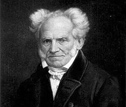- Ebook

COP $ 9.900
This book is a collection of essays by Arthur Schopenhauer, a German philosopher best known for his work 'The World as Will and Representation.' In this work, he characterizes the phenomenal world as the product of a blind noumenal will, building on the transcendental idealism of Immanuel Kant. Schopenhauer developed an atheistic metaphysical and ethical system that rejected the contemporaneous ideas of German idealism. Some of the titles include in this book are 'Care should be taken not to build the happiness of life' and 'Envy is natural to man; and still, it is at once a vice'.
This book is a collection of essays by Arthur Schopenhauer, a German philosopher best known for his work 'The World as Will and Representation.' In this work, he characterizes the phenomenal world as the product of a blind noumenal will, building on the transcendental idealism of Immanuel Kant. Schopenhauer developed an atheistic metaphysical and ethical system that rejected the contemporaneous ideas of German idealism. Some of the titles include in this book are 'Care should be taken not to build the happiness of life' and 'Envy is natural to man; and still, it is at once a vice'.
-
FormatoEbook
-
EstadoNuevo
-
Isbn4057664166944
-
Peso688.3 KB
-
Número de páginas197
-
Año de edición2019
-
IdiomaInglés
-
FormatoEPUB
-
ProtecciónDRM
-
ReferenciaBKW106321

